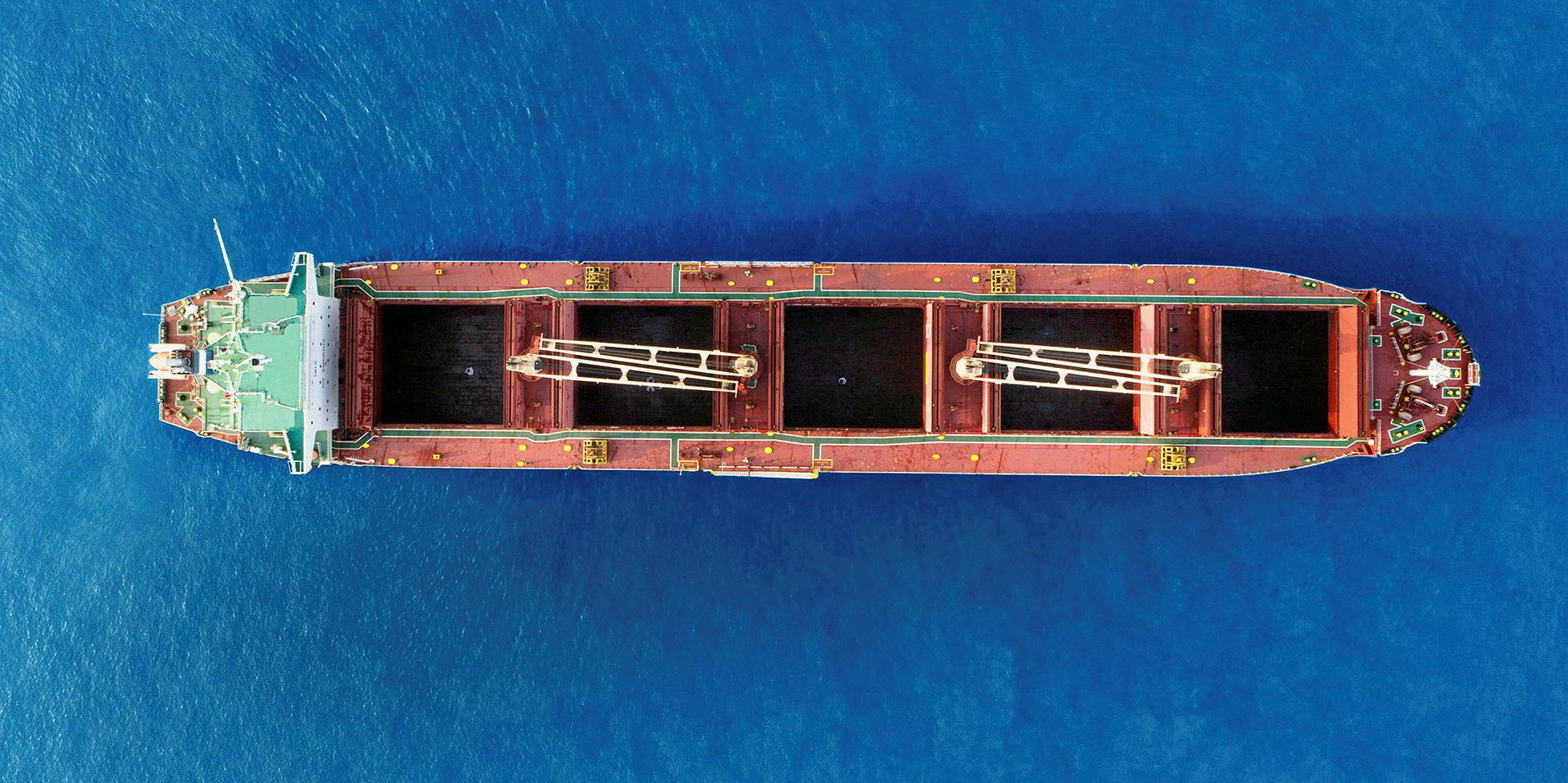A plunge in Star Bulk Carriers' shares can be traced back to a deal the Petros Pappas-led shipowner made with Songa Bulk back in July, according to a prominent analyst.
Jefferies' Randy Giveans rejected claims that the drop was a result of the announcement of a share incentive plan for company executives.
Instead, he said the share fall was related to a six-month trading restriction placed on stock connected to Star Bulk's acquisition of 15 Songa Bulk vessels.
Star Bulk on 6 July took the ships in exchange for 13.7 million common shares and $145m in cash, placing the shares on the Oslo Stock Exchange for six months pursuant to SEC rules.
That barrier was lifted Wednesday, allowing the shares to trade on Nasdaq with the rest of Star Bulk's shares under the regular "SBLK" ticker symbol.
Star Bulk's shares fell 12.4% Tuesday to $9.15 and have fallen another 3.3% to $8.84 in late-morning trading today.
"The real reason the stock sold off is due to the Songa restricted period ending," Giveans wrote in an email to TradeWinds. "Lots of selling pressure with that."
"Personally, I’m surprised that so many ex-Songa shareholders would sell at these levels, but I think it will be a positive as SBLK will likely repurchase many of these shares."
He said Star Bulk probably cannot buy "a massive lot at once" because thousands of Songa shareholders now own Star Bulk shares.
"That said, I expect SBLK to buy as much as they can, even in lots of 100 to 100,000 as there is still plenty of room left on the share repurchase authorisation," he said.
"This Songa selling will be a short-term headwind, long-tailwind for SBLK!"
Incentive plan not to blame
Giveans commented on the declining stock price after Deutsche Bank analyst Amit Mehrotra said the fall was due to Star Bulk announcing a stock incentive plan for bosses.
Giveans disagreed with Mehrotra's reasoning behind the tumble.
"I strongly push back against this for three reasons," he said.
He said the plan is for only 4 million shares, or 4.3% of Star Bulk stock, and will cause only 2% dilution per year over the two years of the programme.
Further, management will start owning the previously restricted units if the company outperforms Baltic Exchange drybulk charter rate indices by at least $120m and to greater degrees up to $300m.
"If SBLK outperforms the market by $300m over the next two years, the share price is going to $20…at least!" he said.
"I think every shareholder would be happy to give management 4% of new shares with that kind of outperformance."
Giveans said the incentive programme seems to be ready to reward Star Bulk's chartering and operations teams if and when the scrubber programme takes effect.
"To be clear, not many people, even management, expect that kind of massive outperformance."
The company plans to install exhaust gas scrubbers on its entire fleet of 105 ships.



